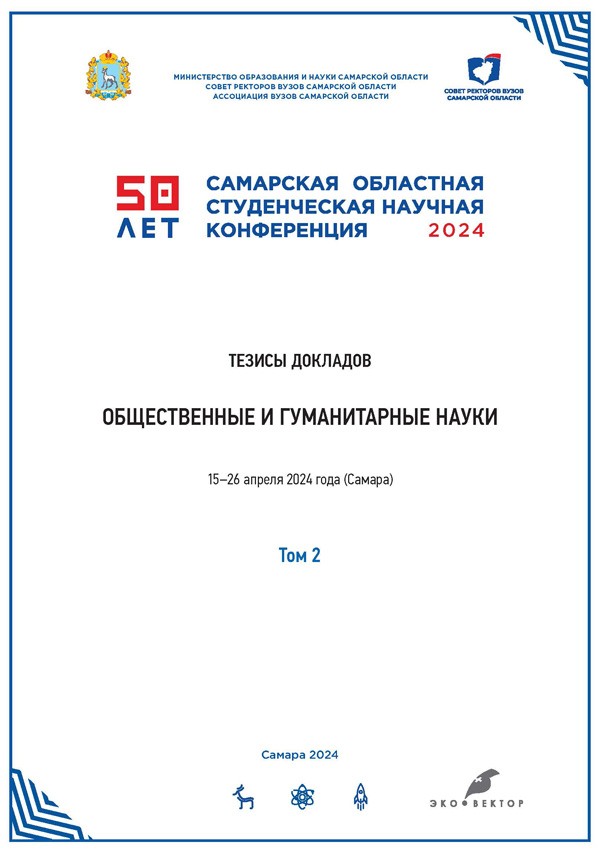Development of cultural awareness among international students for working across languages and cultures
- Authors: 1, 1
-
Affiliations:
- Samara State Technical University
- Issue: Vol 2 (2024)
- Pages: 191-191
- Section: ЧАСТЬ II. Иностранный язык в области профессиональной коммуникации
- URL: https://snv63.ru/osnk-sr2024/article/view/632848
- ID: 632848
Cite item
Full Text
Abstract
Justification. Language learning is impossible without understanding the culture of its nation. Successful intercultural communication and cooperation requires a detailed examination of the mentality, norms of behavior and values of another culture.
Aim. Development of strategies for forming foreign students’ cognitive interest in the Russian culture. The project will help increase both linguistic and cultural competence.
Methods. Create and pilot a lesson, for international students. Also, use the most appropriate vocabulary to better understand and engage with the lesson.
Results. In our project we interacted with 15 foreign students from our university. They are from Egypt, India, Nigeria, Coted’Ivoire and Niger. We have studied some scientific sources on pedagogical practices and found out that one of the most interesting and effective methods of introducing foreign students to the history and culture of the country is based on folktales. They help reveal the values, habits and traditions of people.
As part of our project, we have created some materials for practical classes with foreign students for 6 academic hours. These materials are based on the Russian folk tale “Three Bears”. During the lesson we discuss these aspects of the Russian culture.
Moreover, we read the text together by roles, worked with vocabulary, repeated grammar rules. Also, we made 15 exercises aimed at finding out the opinions of our students about the aspects of their own cultures.
Also, for our lessons we have produced the list of some curious facts about Russia, illustrated them with original drawings and introduced them to foreign students. These facts are created in order to attract listeners and activate their ideas about our country.
At the next stage of our project we have made up 8 questions about Russian people based on these facts in order to check their knowledge. 2 questions required a self-search of information. We used them to check the development of cognitive interest.
Findings. We have created the system of lessons that will help develop cultural awareness of foreign students in Russia. The knowledge of our culture will help foreign students communicate with Russian-speaking students better, teachers and integrate into the local environment much faster. What is more, it will make them successful in their professional interactions in the future.
Full Text
Justification. Language learning is impossible without understanding the culture of its nation. Successful intercultural communication and cooperation requires a detailed examination of the mentality, norms of behavior and values of another culture.
Aim. Development of strategies for forming foreign students’ cognitive interest in the Russian culture. The project will help increase both linguistic and cultural competence.
Methods. Create and pilot a lesson, for international students. Also, use the most appropriate vocabulary to better understand and engage with the lesson.
Results. In our project we interacted with 15 foreign students from our university. They are from Egypt, India, Nigeria, Coted’Ivoire and Niger. We have studied some scientific sources on pedagogical practices and found out that one of the most interesting and effective methods of introducing foreign students to the history and culture of the country is based on folktales. They help reveal the values, habits and traditions of people.
As part of our project, we have created some materials for practical classes with foreign students for 6 academic hours. These materials are based on the Russian folk tale “Three Bears”. During the lesson we discuss these aspects of the Russian culture.
Moreover, we read the text together by roles, worked with vocabulary, repeated grammar rules. Also, we made 15 exercises aimed at finding out the opinions of our students about the aspects of their own cultures.
Also, for our lessons we have produced the list of some curious facts about Russia, illustrated them with original drawings and introduced them to foreign students. These facts are created in order to attract listeners and activate their ideas about our country.
At the next stage of our project we have made up 8 questions about Russian people based on these facts in order to check their knowledge. 2 questions required a self-search of information. We used them to check the development of cognitive interest.
Findings. We have created the system of lessons that will help develop cultural awareness of foreign students in Russia. The knowledge of our culture will help foreign students communicate with Russian-speaking students better, teachers and integrate into the local environment much faster. What is more, it will make them successful in their professional interactions in the future.
About the authors
Samara State Technical University
Author for correspondence.
Email: anastasyautkina1234567890@gmail.com
student, group 110, Institute of Engineering, Economic and Humanitarian Education
Russian Federation, SamaraSamara State Technical University
Email: alyalazo@mail.ru
student, group 110, Institute of Engineering, Economic and Humanitarian Education
Russian Federation, SamaraSupplementary files









